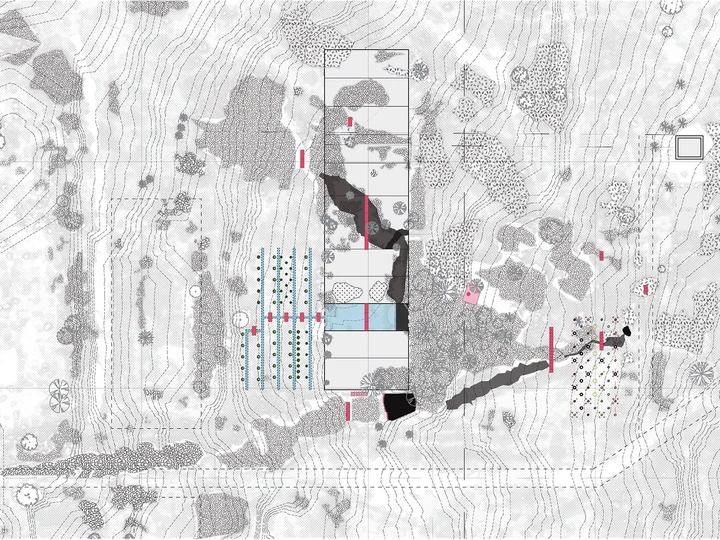Surplus Gardens

Nishnianidze Giorgi
Benjamin Hackenberger
Our research areas include ruderal ecological dynamics, urban forestry, and the ecology and culture of former health landscapes of Georgia. We partner with municipalities, institutions, community groups, and private developers to guide the design and planning process, from concept to construction.
Our research is reflected in publications, both peer-reviewed and ongoing documentation on our public blog, ruderal.substack.com, as well as public lectures and educational programs. Most critically, it takes the form of low-cost, site-specific interventions to test concepts of the spatial, phenomenological, and interspecies aspects of ecological unfolding. Ruderal has been recognized internationally for the Tbilisi Urban Forest (Finalist, European Prize for Public Space, EUmies Awards, Landezine International Landscape Award-LILA); Arsenal Oasis won the Special Jury Prize from LILA and the International Award at the Stretto Architecture Biennial; and the Betania Forest Garden earned a Special Jury Prize from LILA and was nominated for an EUmies award. Ruderal director Sarah Cowles is currently authoring a collection of essays entitled "Extemporaneous Landscapes" which includes essays on ruderal aesthetics, post-catastrophe landscapes, and the role of surplus material and energies in landscapes. Partner Benjamin Hackenberger is a LANDLABs Doctoral Candidate at the University of Ljubljana, working with Ana Kučan to develop a long-term landscape development plan and pilot projects for the Sečovlje Salt Pans. The salt pans are situated in the Dragonja estuary, near Piran, on the Adriatic Coast of Slovenia.
Locally, we provide technical assistance to community-led landscape restoration groups, and host international research fellows who conduct independent research on the cultural landscapes of Georgia.
Surplus is beyond the necessary. There is nothing neutral in surplus: surplus is nothing but trouble. Shunted from typical flows, surplus is held in abeyance. Surplus has an anarchic, malleable energy that is open to rearticulation. Surplus begets aesthetic reoccupation: punk fashion recasts military surplus. Surplus fuels subculture: hackers, black marketeers, skimmers, and squatters all remix the semiotics of surplus.
Surplus is more. Surplus is a gray space where one meaning is terminated and another conjured. Surplus has choices: go black (as in markets); hide (to fake scarcity), stand by (for a rainy day) or succumb (as waste).
Gardens are grey spaces where surplus becomes art: where meanings of matter, space, and energies are unmoored, interpreted, and articulated. In the garden, materials and energy are free to shift meaning: agricultural species and techniques become horticulture. Wherever surplus arbitrage takes place—in a garden villa, a vacant lot, or a squat—spaces of alternate organization emerge.
Arsenal Oasis, constructed for the 2020 Tbilisi Architecture Biennial, is an evolving test garden made from Tbilisi's surplus land and water. The project initiates a new public landscape from a leaking water main that once supplied the Soviet army base. It is the first realized work in a line of our speculative projects, which examine how surplus material, land, and energies can be choreographed into new public landscapes that have social and ecological benefits. The work is aesthetic, spatial, and grounded in material and ecological research.
We will explore material, energetic and metaphoric applications of "surplus" in a series of speculative and built landscapes and critical essays. While we are spread across three countries, the LINA Community will enable us to expand the scope of our studio and ideas, find common spaces for collaboration as a team, and expand our network to enrich, connect, and receive critical feedback on our work.